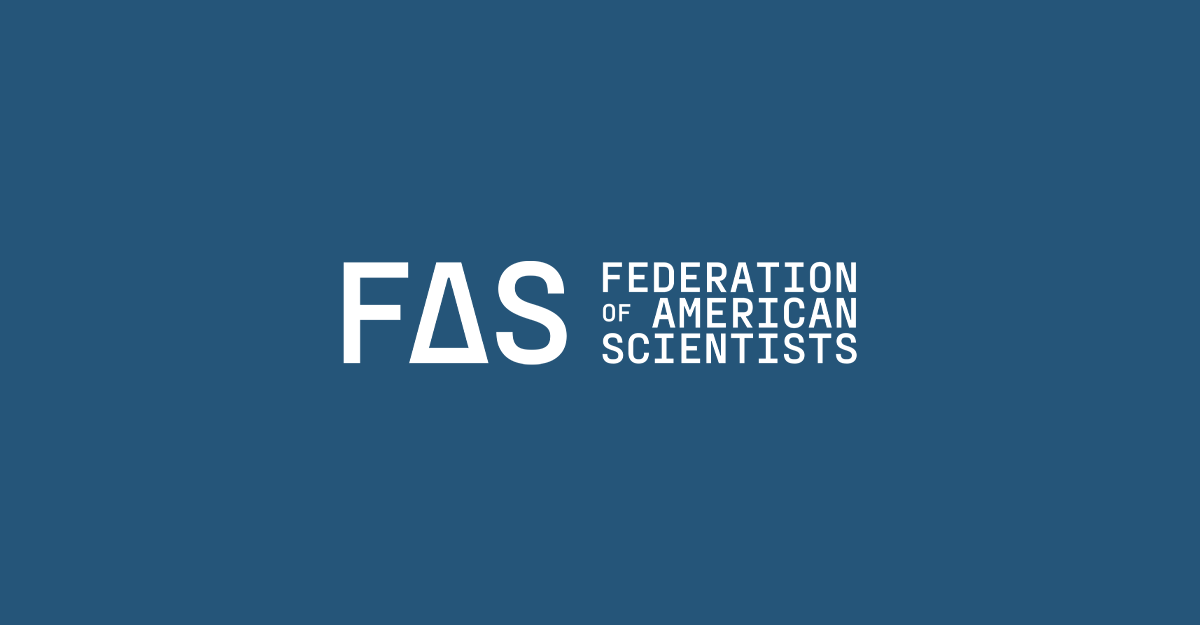
Federation of American Scientists and Environmental Policy Innovation Center Unveil Permitting Tech and Talent Policy Recommendations to Support Deployment of Crucial Energy, Environmental, and Infrastructure Projects
Technology and talent recommendations will speed permitting required by the National Environmental Policy Act (NEPA)
Washington, D.C. – February 5, 2025 – To facilitate faster implementation on our Nation’s biggest projects, the Federation of American Scientists (FAS), a non-partisan, nonprofit science think tank dedicated to developing evidence-based policies to address national threats, today released permitting policy recommendations to improve talent and technology in the federal permitting process. These recommendations will address the sometimes years-long bottlenecks that prevent implementation of crucial projects, from energy to transportation.
“Inefficient permitting processes continue to impede accelerated deployment of energy, infrastructure, and restoration projects in the U.S ,” says Daniel Correa, CEO of FAS. “Even as so much of the debate in Washington, DC focuses on legislative fixes, our findings suggest that it all comes down to getting implementation right. And getting these details right is what will help ensure that speed and efficiency do not come at the costs of core ecosystem services and environmental benefits.” Though permitting regulations and processes are currently in flux, government entities should strategically leverage talent and technology to build and implement a more efficient, effective process.
Modernized Technology and Highly Skilled Talent
For the last 18 months, FAS has been studying how agencies use technology and talent in permitting processes required by the National Environmental Policy Act (NEPA). For the talent portion of the project, FAS partnered with the Permitting Council to understand bottlenecks to federal hiring for permitting roles and recommend solutions.
“We identified a series of challenges hindering the development of talent capacity and stymieing the hiring process, synthesized insights from civil servants, and are making recommendations to address these bottlenecks,” says Erica Goldman, Director of the Day One Project and Policy Entrepreneurship at FAS.
She continues: “Through our technology work in partnership with the Environmental Policy Innovation Center (EPIC), we’ve highlighted pockets of innovation, talked to stakeholders working to streamline NEPA processes, and made evidence-based recommendations for improved technology practices in government. This work has substantiated our hypothesis that technology has untapped potential to improve the efficiency and utility of NEPA processes and data.”
Parallel Permitting Challenges
Great technology doesn’t build itself. Solutions to the technology and talent challenges that plague permitting will fall short of their potential if they are not developed together. Great technology products come from great talent. In turn, great talent can be unleashed with better technology.
“In our work, we noticed that technology and talent initiatives face parallel challenges in several respects. For example, federal permitting is accomplished through disparate teams across agencies’ regions, offices, and bureaus with disparate staffing models and occupations; in the same way, permitting technologies are diffuse and unique to specific agency or sub-agency teams and permitting goals instead of consistent and shared across permitting teams,” says Peter Bonner, Senior Fellow at FAS, who was involved with the research.
He continues: “As the federal government wrestles with improving the efficiency of permitting processes, it is imperative that technology and talent teams work together. Recognizing the intrinsic link between talent and technology and addressing shared challenges collaboratively is essential to building a more efficient permitting system.”
“At the end of the day, we think using technology, including AI, can eliminate more than 50% of the time it takes to complete every permit,” says Tim Male, Executive Director of EPIC, “yet that tech won’t work if you don’t have the right people in and out of government who understand and can leverage it – our recommendations are about the people, policy and tech solutions to accelerate permitting.”
###
ABOUT FAS
The Federation of American Scientists (FAS) works to advance progress on a broad suite of contemporary issues where science, technology, and innovation policy can deliver dramatic progress, and seeks to ensure that scientific and technical expertise have a seat at the policymaking table. Established in 1945 by scientists in response to the atomic bomb, FAS continues to work on behalf of a safer, more equitable, and more peaceful world. More information about FAS work at fas.org.
ABOUT ENVIRONMENTAL POLICY INNOVATION CENTER
The Environmental Policy Innovation Center (EPIC) advances policies that deliver spectacular improvement in the speed and scale of environmental progress. A nonprofit start-up founded in 2017, EPIC is committed to finding and highlighting the best approaches to scaling up results quickly across drinking water, biodiversity, permitting, environmental markets, and the use of data and technology to produce positive environmental and public health outcomes. More about our EPIC work at policyinnovation.org.
Permitting Reform Resources
A full list of publications from FAS’s 18 month research workstream, including findings, recommendations, and case studies, can be found on FAS’s website.
The United States faces urgent challenges related to aging infrastructure, vulnerable energy systems, and economic competitiveness. But the permitting workforce is unprepared to implement changes. Here’s how they can improve.
Improving American competitiveness, security, and prosperity depends on private and public stakeholders’ ability to responsibly site, build, and deploy proposed critical energy, infrastructure, and environmental restoration projects.